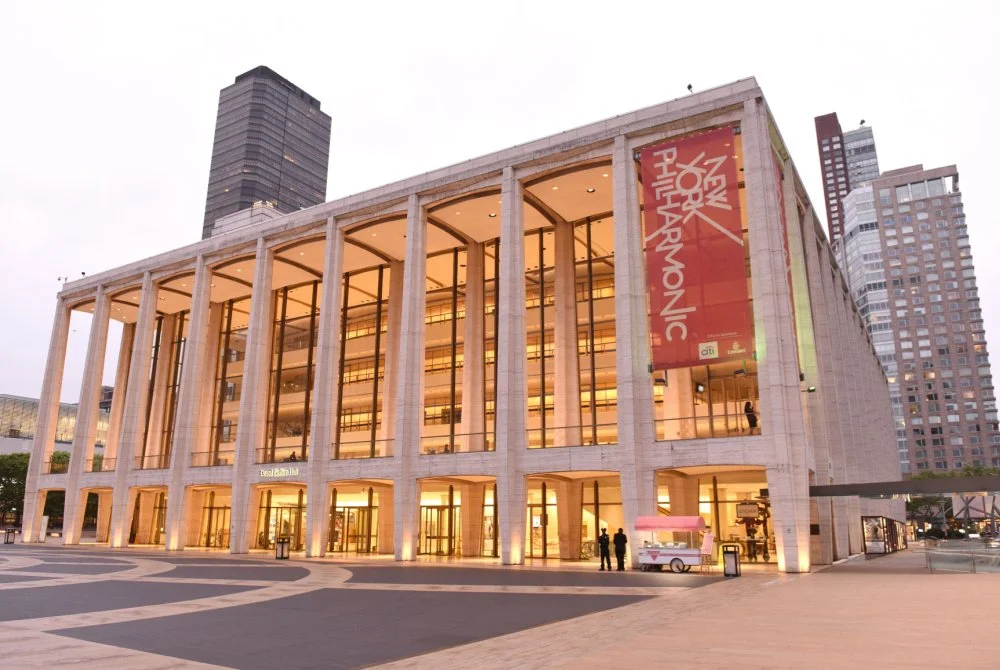Society is Disintegrating. Can This Arts Grant Help Save Us?
/KreativKolors/shuttersock
In a philanthropic landscape where impact is often measured by the number of lives saved per dollar, arts proponents have been keen on promoting the benefits of the "arts experience."
Some metrics, like art's ability to boost student test scores or cultivate more satisfied and productive employees, can be measured. Others, not so much. A spreadsheet or audience survey can never truly capture the fulfillment of listening to a symphony.
That being said, we intuitively know that an art experience can be fulfilling. But can it also make us more empathetic human beings?
That's the provocative question raised by the Andrew W. Mellon Foundation's grant of $750,000 to the Minneapolis Institute of Art (MIA). The grant will establish a Center for Empathy and the Visual Arts with the goal of working with researchers, scholars and artists to explore ways the visual arts can foster empathy and compassion to "affect positive social change."
Cynics may dismiss the gift as an example of low-yield, touchy-feeling giving. Given all the problems out there, why is Mellon allocating $750,000—not a fortune, but also not chump change—to "foster compassion and enhance related emotional skills?"
For one possible answer, we turn, as always, to Facebook.
"No Civil Discourse, No Cooperation"
In mid-December, Facebook published a post on its blog stating that its service can sometimes lead to lower measures of physical and mental well-being. This came after former Facebook employee Chamath Palihapitiya said, "The short-term, dopamine-driven feedback loops that we have created are destroying how society works. No civil discourse, no cooperation, misinformation, mistruth."
Funders increasingly agree with Palihapitiya's assessment. Look no further than the journalism space, where a cadre of civic-minded philanthropists like Craig Newmark have ramped up efforts to combat "fake news." Or consider gifts focused on improving our toxic civil discourse or closing the "global trust deficit."
Or, for that matter, consider the bold and bland philanthropy of Mark Zuckerberg and Priscilla Chan.
Most commentators agree that Zuckerberg has been blindsided by Facebook's reach and influence. Back when he was coding deep into the night in his Harvard dorm room, he probably never expected that he would eventually draft a nine-step plan to "help safeguard the integrity of elections around the world."
I'll leave it to the psychologists to debate if Zuck's expanding philanthropy is partly rooted in a sense of guilt. But he certainly wouldn't be the first donor concerned with his philanthropic brand, nor the first seeking penance for what he has unleashed.
Facebook researchers, guilt-ridden former employees, funders, and perhaps even its co-founder seem to be on the same page, here. Instead of bringing people together, social media and its algorithms are further dividing Americans by providing echo chambers that deliver personalized content, edify stereotypes, and block out opposing points of view. Preconceptions harden and empathy dissipates.
A Twist on Empathy-Driven Philanthropy
The idea that a funder would allocate close to a million dollars to study empathy and the arts may sound novel, but there's actually a good deal of precedent across the larger philanthropy space.
We've previously looked at "empathy grants" aimed at cultivating understanding across communities, Wall Street titans leveraging empathy to build an "increasingly civil society," and ways in which funders can use love to drive their philanthropy.
Dacher Keltner, a professor of psychology at the University of California, Berkeley, a partner in the MIA research project, picks up the thread, noting that "aesthetic experiences—in viewing a painting, sculpture, photograph, or dance, or in music—are sources of awe and wonder. They enable us to solve a complex mystery—to understand what our fellow humans think and feel."
Again, it's hard to disagree with Keltner's statement. But Mellon wants more than mere intuition. As part of the grant, the folks at MIA are taking a regimented approach to test its hypothesis.
The initiative's first phase kicked off in October, when MIA invited experts in the social sciences, empathy research, virtual reality and neuroscience fields, in addition to museum curators and directors, artists and educators, to discuss empathy and the art museum at UC Berkeley.
During the initiative's second phase, the center will put together a guide for museum educators and curators that will inform them on how best to use their collections to foster empathy among their own visitors.
It's worth repeating that the goal, here, isn't simply to generate a warm and fuzzy feelings. The goal is to "affect positive social change."
However nebulous the goal may be during this formative stage, it nonetheless fits squarely within the surging "artist as activist" continuum. Funders believe the "arts experience" shouldn't be a passive transaction, but an event that generates measurable, socially focused outcomes.
In related news, MIA also announced that it received a $520,000 grant from the Ford Foundation and the Walton Family Foundation to fund the museum’s ongoing "Inclusion, Diversity, Equity, and Accessibility" initiative, which will pay for a new fellowship program for college students who are historically underrepresented.
The pair of foundations recently committed $3 million over three years to "support creative solutions" to diversify curatorial and management staff at art museums across the United States.
Classicists at Heart
The MIA gift, meanwhile, is also an example of textbook Mellon Foundation philanthropy. The funder has been a tireless advocate of a liberal arts education. It's the happy warrior toiling in the underappreciated corners of academia like bibliographical studies. And it's a consistent supporter of museums, particularly for boosting diversity across the management ranks.
Mellon appreciates technology's ability to transform the humanities, but at the end of the day, they're classicists at heart, which is why I was drawn to the Luddite-like dimension of its MIA gift.
Conventional wisdom tells us that museums need to embrace technology to engage audiences. They must digitize their collections, build customized apps, and keep visitors glued to their smartphones.
And while MIA's initiative certainly has a subtle technical component, the core of Mellon's gift speaks to art's timeless ability to—and I'm quoting director Kaywin Feldman here—create awareness of our "common humanity" and cultivate "an immediate sense of connection between the viewer and someone who may have lived in a very different time and place... Thanks to the Mellon Foundation, we're proud to take the lead with partners across the country, in studying how to spark and nurture empathy through the visual arts, so that MIA and all art museums can contribute even more toward building a just and harmonious society."
Ultimately, arts proponents looking to "make the case" may have stumbled upon another compelling talking point courtesy of Mellon. In an increasingly fragmented society, museums, according to UC Berkely's Keltner, "may be one of the great catalysts of human empathy and compassion."







































